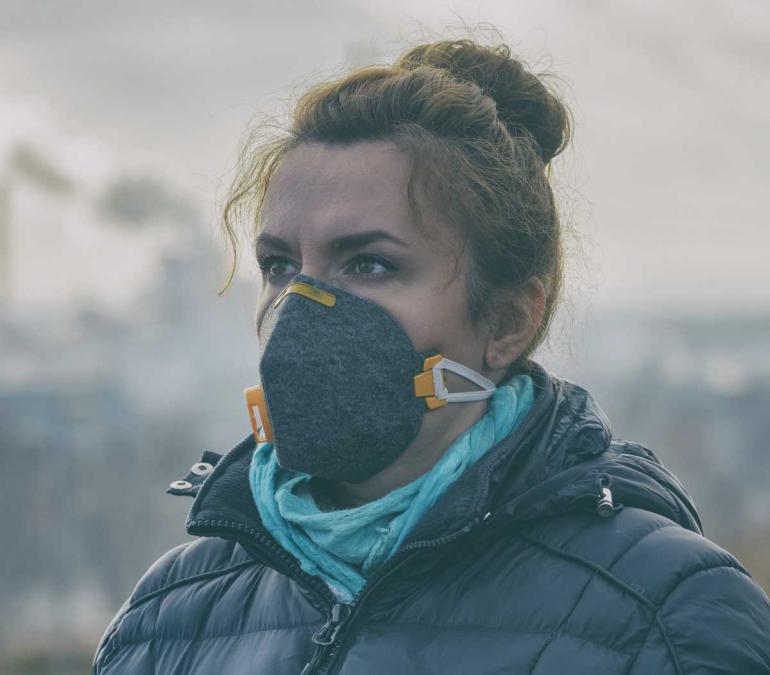
Promote Environmental Justice
Toxic exposures and climate change are threats to the health of families.
What We Know
Air pollution, toxins in water, chemicals in products used at home, natural disasters and high temperatures can negatively impact the health of moms and babies.
For example, pregnant people exposed to high temperatures and air pollution are more likely to give birth preterm or to underweight or stillborn babies, as well as suffer from eclampsia and preeclampsia.
Research shows that some communities are disproportionately exposed to environmental threats associated with higher rates of negative health outcomes before, during and after pregnancy.

Exposure to environmental toxins and climate change threats is not equal
These threats inequitably affect communities of color when compared to their White counterparts both at home and in the workplace, which can lead to higher risks for poor maternal and infant health outcomes.



Risk of Heat
Pregnant individuals exposed to high temperatures or air pollution are more likely to give birth preterm or to underweight or stillborn babies.
– Center for Sustainable Systems, University of Michigan. 2020. "Environmental Justice Factsheet." Pub. No. CSS17-16.
News & Resources
NCEH works to prevent illness, disability and death from contacts between people and the environment. Its staff is committed to protecting the health of vulnerable populations — children, the elderly, and people with disabilities – from certain environmental hazards.

Learn about the EPA's Office of Environmental Justice. Environmental justice is the fair treatment and meaningful involvement of all people regardless of race, color, national origin, or income, with respect to the development, implementation, and enforcement of environmental laws, regulations, and policies.

ECHO aims to enhance the health of children and adolescents through research that may help inform healthcare practices, programs, and policies.


